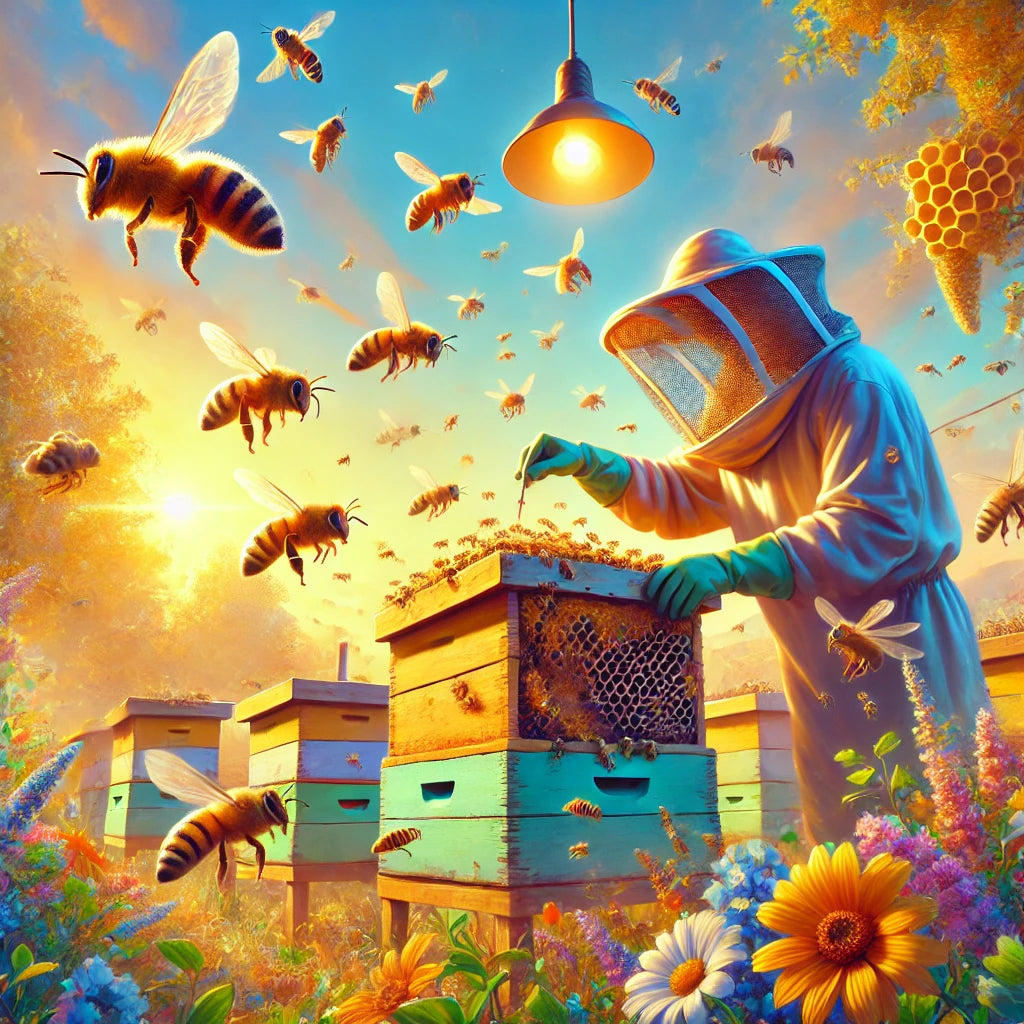Beekeeping might seem serene and peaceful from afar, but ask any beekeeper, and they’ll tell you about the occasional “brush with disaster.” Even experienced professionals like Steve Weeks—a well-known name in the beekeeping community—can get stung from time to time. The truth is, while beekeepers take several precautions, bee stings are a part of the job. Let’s dive into Steve Weeks’ honey-making journey and tackle the question: Do beekeepers get stung?
Do Beekeepers Really Get Stung?
In short, yes—beekeepers do get stung. However, experienced beekeepers, including Steve Weeks, develop techniques to minimize these occurrences. Wearing protective gear such as bee suits, gloves, and veils helps reduce the risk, but it's almost inevitable that you'll get stung if you're around bees regularly. The good news is, many beekeepers build a tolerance over time, and the stings become less of a concern.
Still, knowing how to handle honey bee swarms and using tools like bee trap attractants can significantly reduce interactions that lead to stings.
Steve Weeks' Experience with Bee Stings
Steve Weeks is a seasoned beekeeper with years of experience. Like many in the field, he’s had his fair share of stings, which are inevitable when working closely with bees. But the rewards of collecting honey and helping bees thrive far outweigh the occasional sting.
On Honey Bee Suite, many beekeepers recount their "brush with disaster" moments when bees got aggressive or they unintentionally provoked a hive. Steve, like many others, advises beekeepers to remain calm when stung. Reacting aggressively can agitate the colony, resulting in more stings.
How to Avoid Getting Stung
If you’re following in Steve Weeks' footsteps, managing bees for honey, pollination, or just learning how to start a bee farm, it's important to minimize stings by practicing a few key methods:
- Proper Protective Gear: A well-fitted bee suit, gloves, and veil will reduce exposure to bee stings.
- Calm Movements: Bees are less likely to sting if you move slowly and confidently. Quick, jerky movements can trigger defensive behavior.
- Using Smoke: Many beekeepers use smoke to calm bees before opening a hive. This is an effective way to reduce the likelihood of stings.
- Bee Hive Location: Strategically placing your hives in areas with natural windbreaks and low human traffic can help keep bees calm and prevent accidental disturbances.
Beekeepers, like Steve Weeks, rely on protective gear and careful handling to keep bees calm, but even with these precautions, the occasional sting is a reality.
A Part of the Beekeeping Journey
Beekeepers, including experts like Steve Weeks, understand that bee stings come with the territory. However, proper hive management, protective gear, and understanding the life cycle of bees help reduce the risks. While it’s nearly impossible to avoid all stings, with experience, you’ll learn to handle bees with confidence and skill.
Protect Yourself While Managing Bees
Whether you’re a seasoned beekeeper or just getting started, it’s important to have the right tools to manage your hives. Visit Swarm Commander to explore top-quality bee trap attractants and products to keep your hives thriving while minimizing risks.
Frequently Asked Questions About Beekeeping and Bee Stings
Q1. How often do beekeepers get stung?
It depends on experience and handling techniques, but most beekeepers get stung a few times per season. Protective gear can significantly reduce stings.
Q2. What should I do if I get stung by a bee?
Remove the stinger as soon as possible to minimize venom injection. Applying ice and taking an antihistamine can help reduce swelling and discomfort.
Q3. Can I be allergic to bee stings if I want to be a beekeeper?
While some beekeepers may have mild allergies to stings, those with severe reactions should consult a doctor before starting beekeeping. Always have an epinephrine injector if you have a known allergy.
Q4. How do beekeepers manage aggressive bees?
Calm, slow movements, wearing protective gear, and using smoke help manage aggressive bees. Beekeepers can also requeen the hive to introduce a less aggressive queen.
Q5. Are certain times of year more dangerous for getting stung?
Yes, bees are generally more protective of their hive in late summer and early fall when resources become scarce. Beekeepers should be especially cautious during these months.



